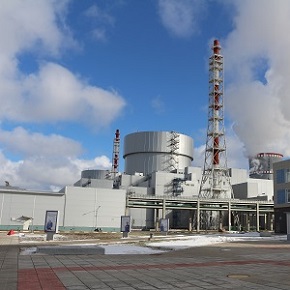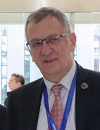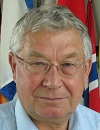 |
||
|
Rosatom starts production of zirconium sponge for nuclear fuel TVEL, PUBLISHED 05.10.2021 Chepetsky Mechanical Plant (ChMP), an enterprise of Rosatom's TVEL Fuel Company in Glazov, Russia's Udmurt Republic, has mastered the technology of zirconium sponge production. The ceremony of the new facility launch took place on October 5, 2021 with participation of Director General of Rosatom Alexey Likhachev and President of TVEL Fuel Company Natalia Nikipelova. Until now, ChMP, the sole Russian enterprise manufacturing zirconium goods, has only used fluoride technology for production of electrolytic zirconium powder. In the common global practice, structural materials of nuclear fuel are made of zirconium sponge. Compared to the fluoride technology, the new sponge production contains half the number of technological operations, has lower consumption of raw materials and energy, the volume of waste is also significantly reduced, while ensuring the high purity of zirconium (in terms of hafnium content). "Mastering zirconium sponge is a major landmark for zirconium production in Rosatom. Development of our own technology from scratch and construction of the new industrial facility is a huge achievement of our researchers and engineers, an important contribution to our global competitiveness. Zirconium sponge can be widely applied in fabrication of nuclear fuel for all major types of power reactors, both of Russian and foreign design," Natalya Nikipelova, President of TVEL Fuel Company, commented. The launch of the new facility at the site of Chepetsky Mechanical Plant is the result of the long-term large-scale work and the wide cooperation of Rosatom enterprises. Development of the own zirconium sponge production required solving a number of issues which the Russian researches, constructors and machine-builders had never faced before. The complete technological cycle and all the equipment for zirconium sponge production were designed and manufactured in Russia. In process, more than 100 new technical solutions were developed, 17 inventions and patents were registered. The most important part of the project was development of the last one - the twelfth technological conversion (stage), which was the rectification separation of zirconium and hafnium chlorides. A unique for the Russian industry facility was built and launched at the ChMP site - the installation for separating zirconium and hafnium chlorides. The height of the facility is over 80 m, it includes 147 units of equipment, more than 2000 sensors of the control and automation system, more than 2000 meters of heated pipelines. The introduced technology of zirconium and hafnium chlorides separation enabled obtaining zirconium tetrachloride of extremely high purity (with a hafnium content of less than 100 ppm), which is important for efficient nuclear fuel operation. Design and development of the new installation included mastering the technology of manufacturing equipment from nickel-chromium-molybdenum alloy, for the first time in Russia, as well as development of pumps for pumping melts, heat and mass exchangers. Other news: The first Chinese HTGR came out for first criticality The Shidao Bay-1 unit consists of two HTR-PM reactors combined with a common 211 MWe turbine. Construction of Akkuyu NPP Unit 3 Begins A ceremony commemorating the start of Unit 3 construction was held at the site of the first Turkish nuclear power plant Akkuyu. TVEL Elemash Machine-building plant launches new manufacturing site for CFR-600 fabrication The dummy fuel bundles for CFR-600 are already manufactured for testing. |
Hero of the day 
Unit 6 of Leningrad NPP commissioned for commercial operation On March 22, 2021, VVER-1200 reactor-enabled Unit 6 was commissioned at the Leningrad NPP. Andrey Petrov, Director General of Rosenergoatom (part of the Electric Power Division of ROSATOM), signed the corresponding order. INTERVIEW
Vladimir Kriventsev OPINION
Victor Murogov |

